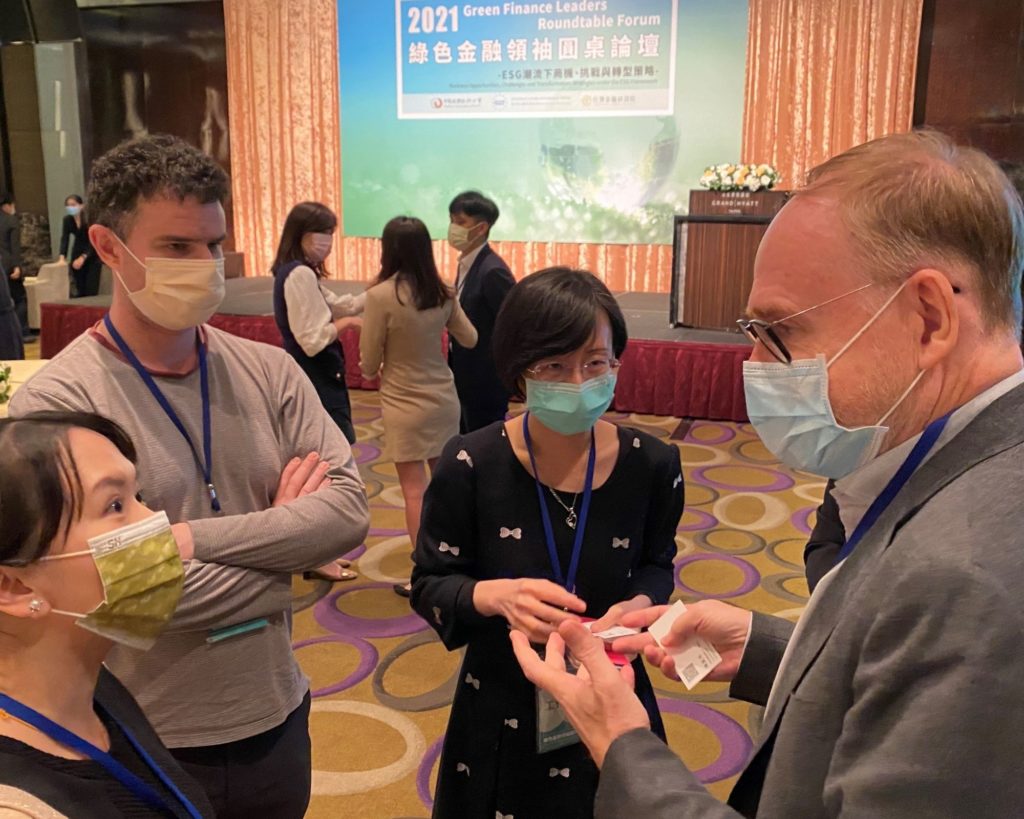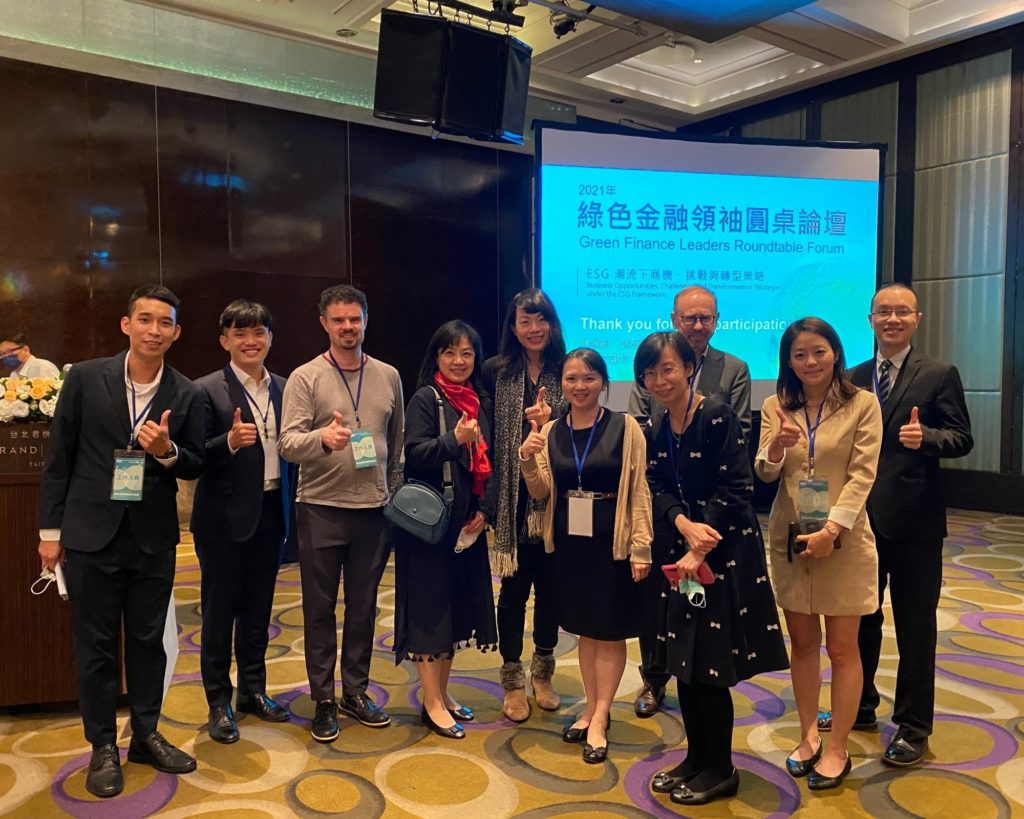[Event Report] 2021 Green Finance Leaders Roundtable Forum II 綠色金融領袖圓桌論壇
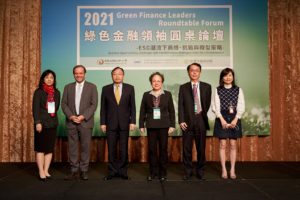
(LR) Dr Wen Lih-Chyi, Research Fellow and Director, The Center of Green Economy at the Chung-Hua Institution for Economic Research (CIER, 中華經濟研究院綠色經濟研究中心主任 溫麗琪), ECCT Vice Chairman Giuseppe Izzo, BAROC Chairman Joseph Lyu (Jye-Cherng, 中華民國銀行公會理事長 呂桔誠), Hsiao Tsuey-ling, Vice Chairperson of the Financial Supervisory Commission (FSC, 金融監督管理委員會副主任委員 蕭翠玲), Honda Chen, the Head of TABF's Sustainable Finance Office (台灣金融研訓院永續金融辦公室負責人 陳鴻達), Clare Chen, Senior Vice President of Corporate Coverage Taiwan at BNP Paribas (法國巴黎銀行副總裁)
Photo Gallery: Facebook
-
The ECCT's Low Carbon Initiative (LCI) was a co-organiser of the second Green Finance Leaders Roundtable Forum held this year. With the theme "Business Opportunities, Challenges and Transformation Strategies under the ESG Framework", the forum was organised by The Bankers Association of the Republic of China (BAROC) and, together the LCI, co-organised by the Taiwan Academy of Banking and Finance (TABF). At the event representatives from financial institutions, government, and ESG related industry leaders held a roundtable discussion on how to promote green finance and environmental sustainability. Opening remarks were made by Honda Chen, the Head of TABF's Sustainable Finance Office (台灣金融研訓院永續金融辦公室負責人 陳鴻達), BAROC Chairman Joseph Lyu (Jye-Cherng, 中華民國銀行公會理事長 呂桔誠), Hsiao Tsuey-ling, Vice Chairperson of the Financial Supervisory Commission (FSC, 金融監督管理委員會副主任委員 蕭翠玲), and ECCT Vice Chairman Giuseppe Izzo.
In his remarks Honda Chen noted alluded to some of the challenges of meeting net zero goals. In his remarks, BAROC Chairman Lyu said that ESG considerations will become part of every aspect of business and that Taiwan's FSC has been implementing enabling legislation since 2017. In her remarks. FSC Vice Chairperson Hsiao noted that the FSC and the EPA had collaborated on joint research to help clarify the scope of sustainable initiatives and help to prevent greenwashing. According to new regulations, companies of a certain size in Taiwan will be required to produce ESG reports starting in 2023, which will need to include data on their CO2 emissions and how they plan to reduce them. In addition, the FSC has changed a number of regulations to encourage sustainable finance and investing. She listed statistics of the number of green bonds, social bonds, and sustainability bonds as well as asset management products that had been released recently.
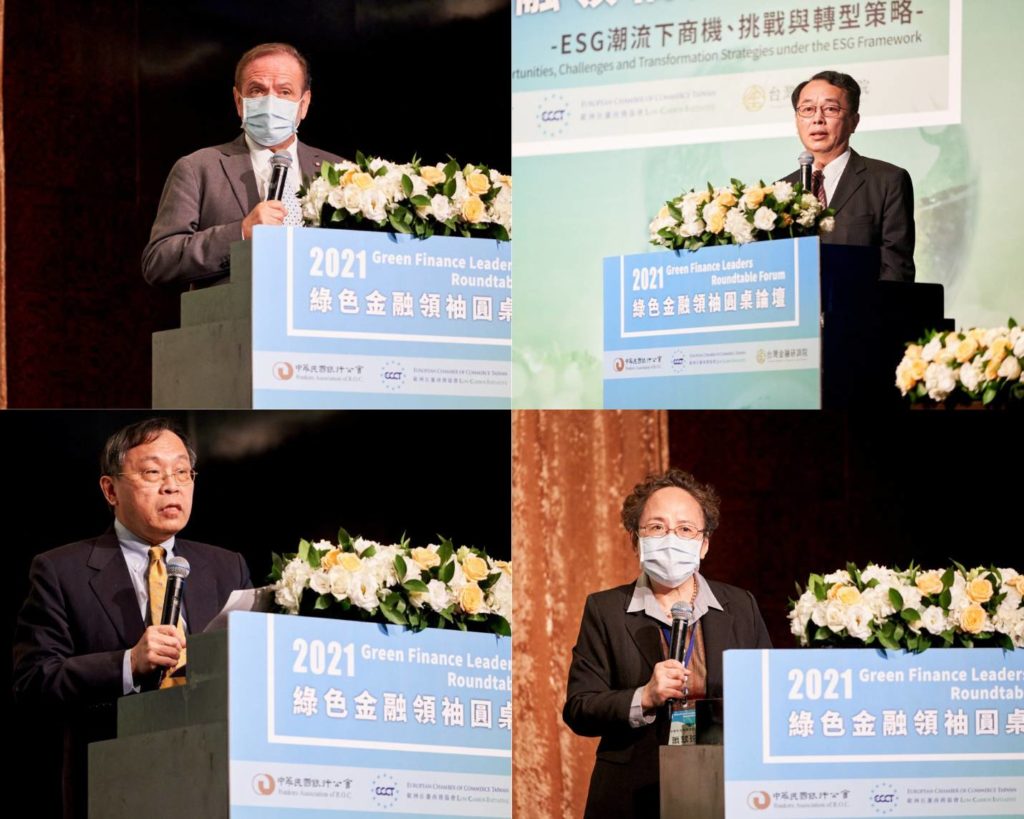
(From upper left to right) ECCT Vice Chairman Giuseppe Izzo, Honda Chen, the Head of TABF's Sustainable Finance Office (台灣金融研訓院永續金融辦公室負責人 陳鴻達), BAROC Chairman Joseph Lyu (Jye-Cherng, 中華民國銀行公會理事長 呂桔誠), Hsiao Tsuey-ling, Vice Chairperson of the Financial Supervisory Commission (FSC, 金融監督管理委員會副主任委員 蕭翠玲)
In his remarks Vice Chairman Izzo referred to an announcement made the week before at the COP26 summit in Glasgow, Scotland by Mark Carney, former UK Central Bank Governor. Carney announced that more than 450 banks and asset managers now belong to the Glasgow Financial Alliance for Net Zero. This is a significant development because these firms control US$130 trillion worth of assets, or around 40% of the world's financial assets and signatories of the GFANZ must commit to use science-based guidelines to reach net zero carbon emissions by 2050 and to provide 2030 interim goals.
However, while the numbers are impressive, sceptics have noted that some of the signatories are not walking the talk. In particular, there is no agreement to stop funding fossil fuels and global banks have invested US$4 trillion in oil, gas, and coal since 2015. Another thing sceptics worry about is the lack of global standards for determining what exactly counts as green or sustainable development, how to measure one type of activity against another and how to verify the accuracy of sustainability claims. Without global standards, there is a danger of greenwashing and misallocation of investments. That means that even investors with good intentions could end up financing investments that are not promoting low carbon technologies and business models. Given the complexity of the challenges ahead, we will need much more transparent data and analysis. As Taiwan has committed to net zero, this type of expertise will need to be developed in Taiwan in line with international trends.
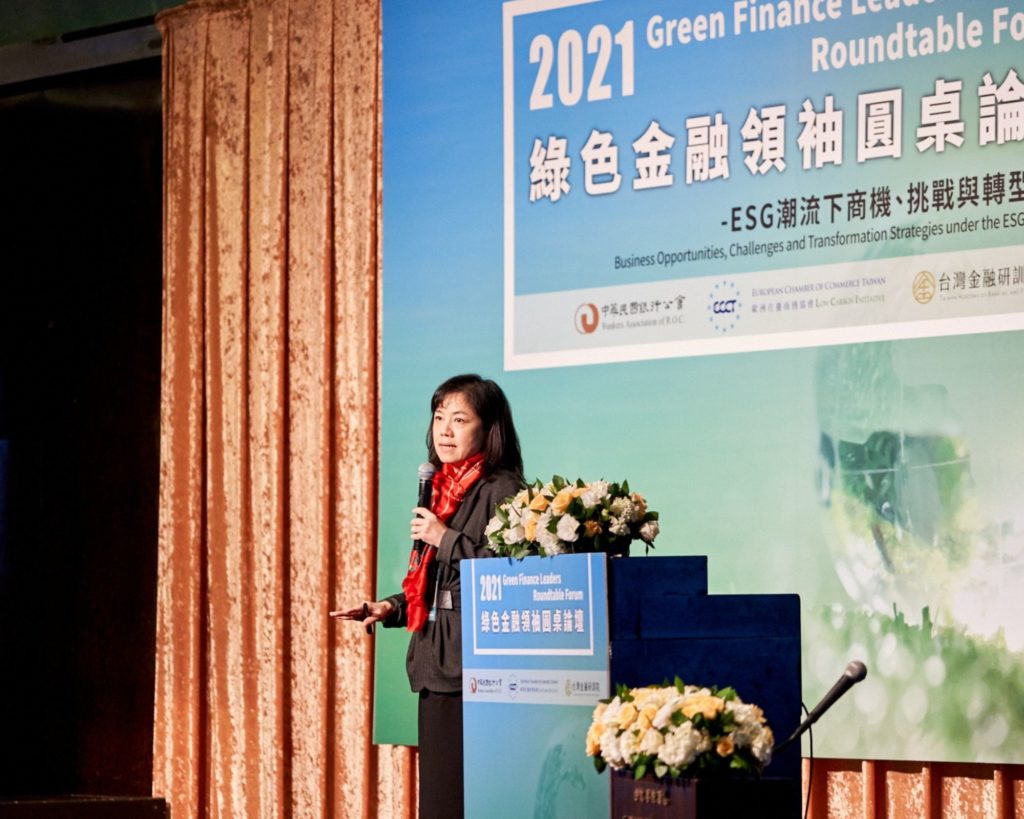 Dr Wen Lih-Chyi, Research Fellow and Director, The Center of Green Economy at the Chung-Hua Institution for Economic Research (CIER, 中華經濟研究院綠色經濟研究中心主任 溫麗琪)
Dr Wen Lih-Chyi, Research Fellow and Director, The Center of Green Economy at the Chung-Hua Institution for Economic Research (CIER, 中華經濟研究院綠色經濟研究中心主任 溫麗琪)
In her presentation, Dr Wen Lih-Chyi, Research Fellow and Director, The Center of Green Economy at the Chung-Hua Institution for Economic Research (CIER, 中華經濟研究院綠色經濟研究中心主任 溫麗琪) gave a presentation on the topic of international developments and trends in ESG policies, ESG industry standards and information disclosure standards.
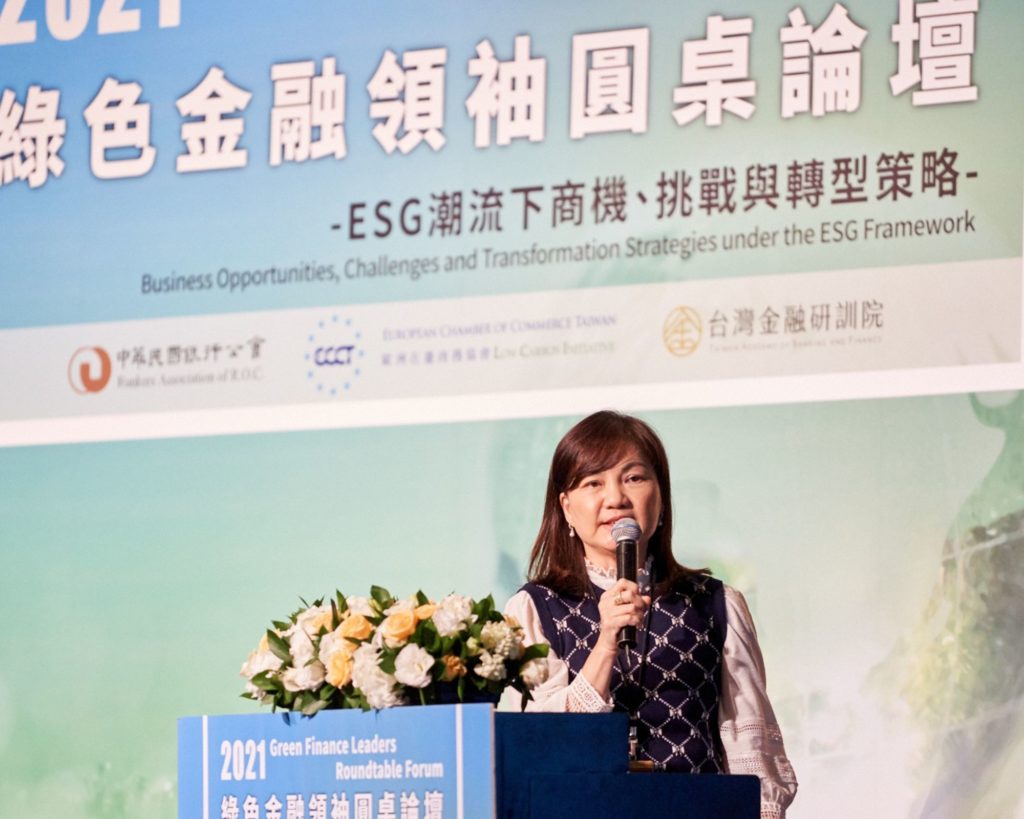 Clare Chen, Senior Vice President of Corporate Coverage Taiwan at BNP Paribas (法國巴黎銀行副總裁)
Clare Chen, Senior Vice President of Corporate Coverage Taiwan at BNP Paribas (法國巴黎銀行副總裁)
Clare Chen, Senior Vice President of Corporate Coverage Taiwan at BNP Paribas (法國巴黎銀行副總裁), spoke about green financial industry transformation trends and shared some of her bank's experiences. She explained how her bank is following principles for responsible banking and contributing to meeting the UN's Sustainable Development Goals by supporting the development of renewable energy and sustainable financing. She went on to explain the bank's process of assessing and ranking ESG risks. She noted that BNP had doubled its financing of renewable energy projects in recent years and has a target of providing €18 billion in renewable energy financing by the end of 2021 and investing €100 million in energy efficiency and clean technology.
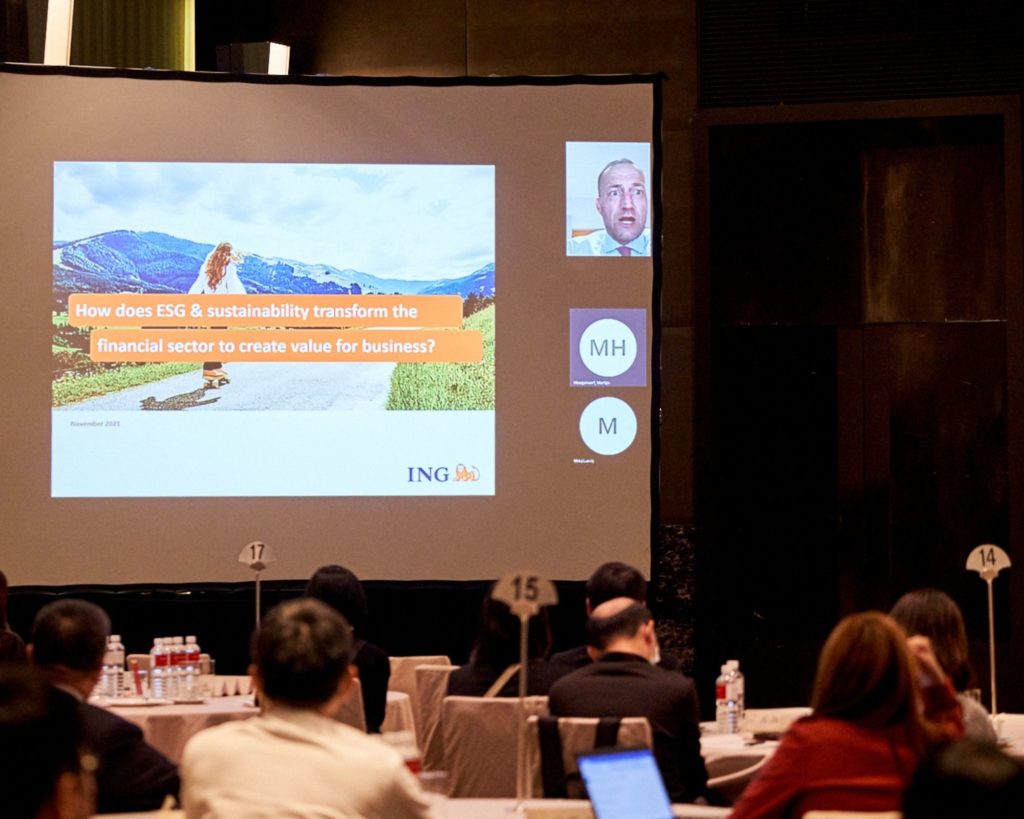 Martijn Hoogerwert, Director of Sustainable Finance at ING Asia
Martijn Hoogerwert, Director of Sustainable Finance at ING Asia
In his presentation, Martijn Hoogerwert, Director of Sustainable Finance at ING Asia spoke about how investment in ESG creates value for companies. ING is an ESG pioneer and has been producing ESG reports since 1996. Since 2018, the firm has been working to align its portfolio with the goals of the Paris Agreement. He pointed out that this has been difficult given the fact that there are many investments in high carbon activities, such as cement production and shipping. Annual progress towards meeting its goals is published on its website. The sustainable finance market is booming, driven not only by regulators but also investors, which are increasingly demanding that ESG factors are incorporated in investment process. He went on to share some case studies of how ING is helping its clients improve their sustainability.
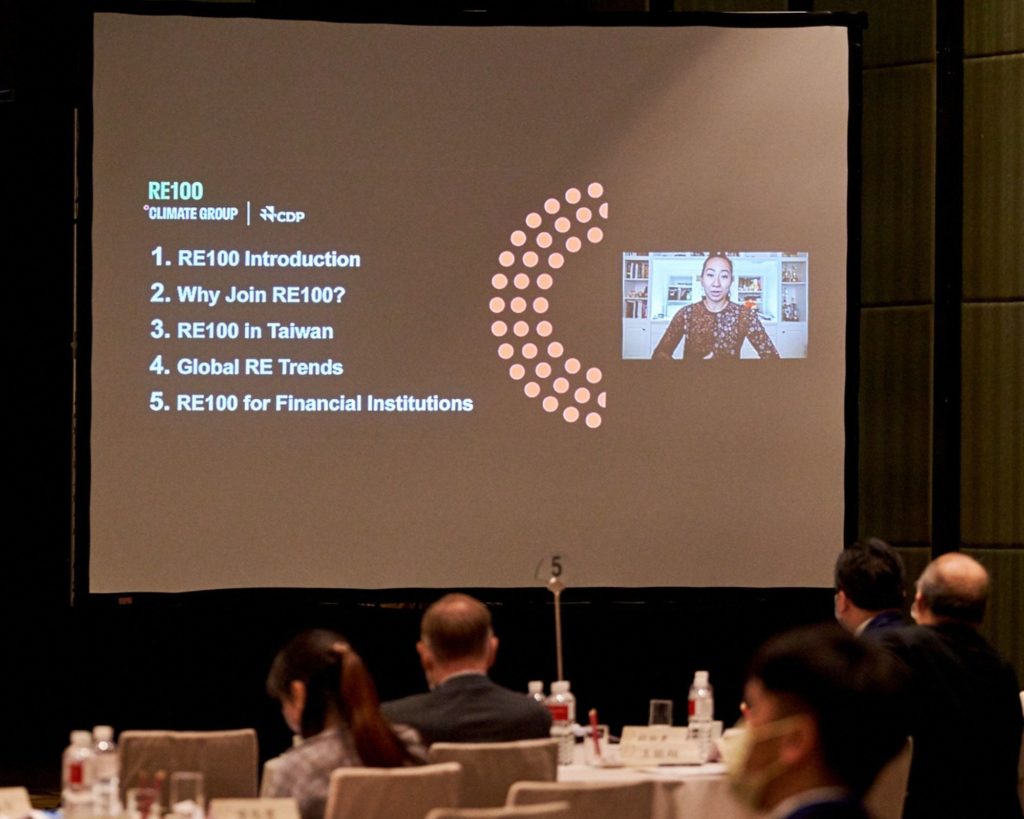 Alisha Lee, Representative of Taiwan Hub RE100
Alisha Lee, Representative of Taiwan Hub RE100
In her presentation, Alisha Lee, Representative of Taiwan Hub RE100, spoke about green industry transformation trends and shared some of her experiences.
The event was concluded by a panel discussion featuring all of the panellists.
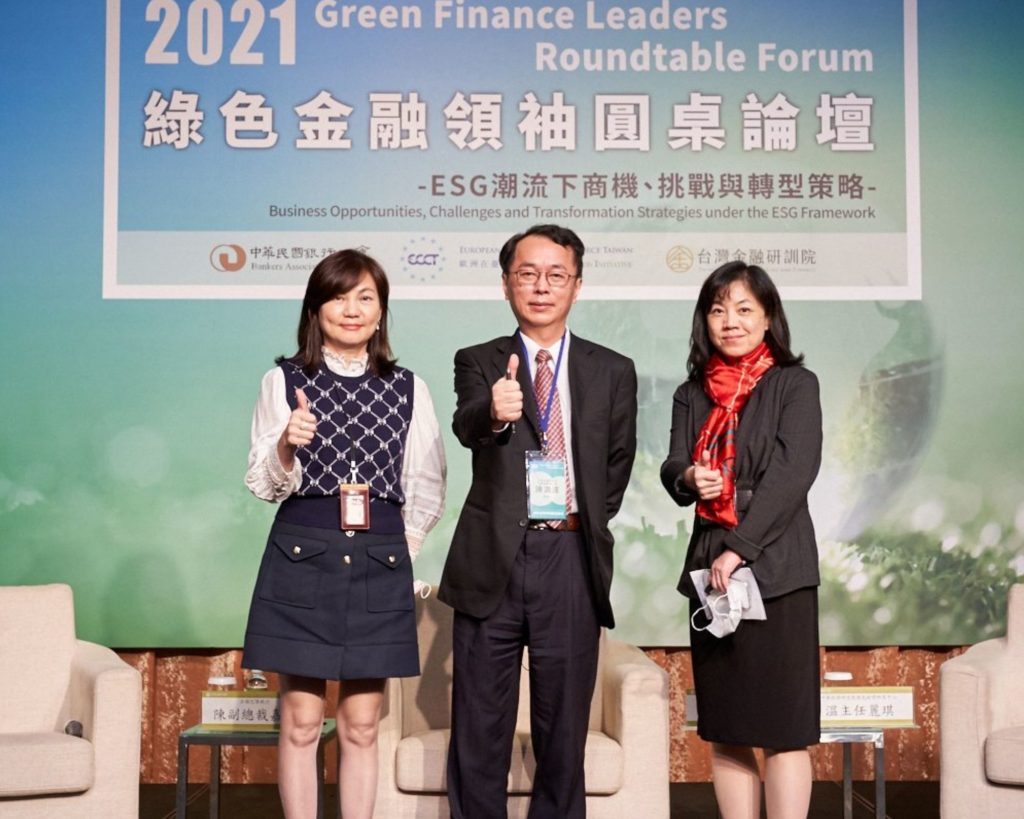 Discussion panel
Discussion panel
